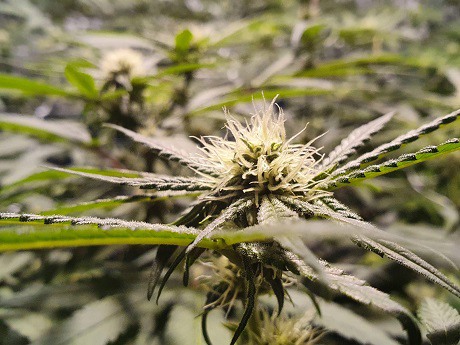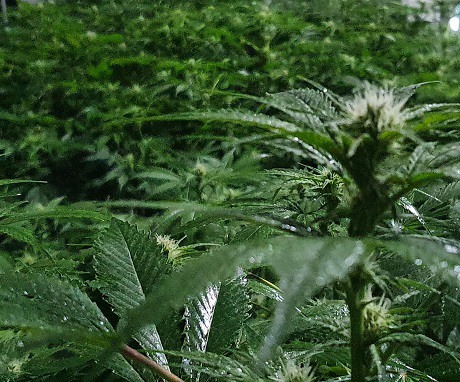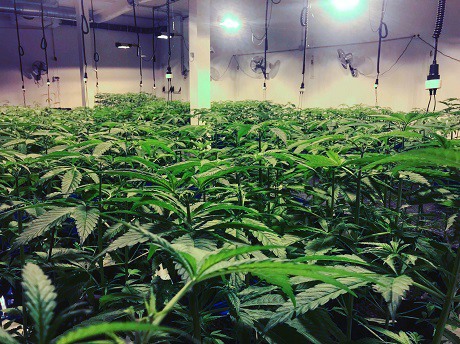Many growers talk passionately about their plants, but not every crop cause the same level of love that the cannabis plant does. When speaking with cannabis growers, they would likely point out how passionate they are about the plant, and how much they love it. Of all the things that might spark such love, there is a particularly striking one: the odor. Almost everyone can recognize the smell of a cannabis plant. But what is exactly of the plant that creates such a unique odor? “Terpenes,” says Davide Agostini, Director of Cultivation at Relash Lab, a cannabis company based out in Granada, Spain. “Terpenes are secondary metabolites, which are produced by the cannabis plant for specific reasons. First and foremost, terpenes functions as protection: from animals, extreme temperatures, and pathogens.”
Terpene molecules
Davide continues to explain that, when growing outdoors, the resin of a plant tends to increase as the temperature goes down, “it functions as a protection against the cold,” he says. “Terpenes are molecules that can be of different dimensions. Depending on how many molecules of isoprene they contain, they can be monoterpene, diterpene, and so on. For instance, monoterpenes are limonene and menthol, which we all know very well. When it’s very hot, these terpenes evaporate creating an actual ventilation system around the flowers to prevent excessive respiration so that the plant does not get too stressed.”

This is just one of the many examples of the protective properties of terpenes, but how are they created? “Their production occurs under stress conditions,” Davide remarks. “It can be any stress: hydric, related to temperature, or mechanical. This means that when positive stress is induced to a plant, this releases the full extent of its genetic potential. On top of that, it has been noted that these terpenes work in conjunction with cannabinoids, thus increasing or reducing the effects of the latter. To put it bluntly, terpenes modulate the pharmaco-dynamic of cannabinoids: for instance, limonene can diminish the potency of THC. Depending on the terpene, the effect varies.”
How to preserve them
At the same time, the problem with terpenes is that they are very volatile, and it takes little to nothing to lose them. That is why Relash Lab carries out a number of processes whose aim is to preserve all the characteristics of the plant. “We have quite an obsessive care for the growing climate and environment,” Davide says. “Our goal is to standardize the cultivation to have flowers that offer consistently the same terpene bouquet. We develop our plants’ genetic code in a climate that is perfect for them – this mainly because we grow CBD rich plants and regulations force us to be below a certain THC percentage threshold.”

But the thing that helps the most preserve the terpenes occurs at the end of the growing cycle. “The harvesting, the drying, and the curing are critical,” Davide points out. “We do a very careful harvest as if we were harvesting saffron. Then, we hang-dry our plants in an utterly controlled environment, whose temperature stays within 17-18 degrees Celsius, and humidity within 57-58%. This allows us to better preserve the more volatile terpenes.”

At the same time, there is something even more unique about the way Davide and Relash Lab grow cannabis, and it doesn’t have to do with the cultivation process necessarily. “Our cultivation facility is close to a 3,000-meter-tall mountain,” he says. “And the water we use on our plants comes from the mountain directly. A few days before the beginning of the harvest, we give our plants only pure, fresh, mountain water. We think that this is very unique about our growth strategy: the quality of the water is of the utmost importance for biologic life; following this assumption, our plants are surely extremely happy to have such pure water tickling their roots.”

For more information:
Relash Lab
+34 697 847 445
info@relashlab.com
relashlab.com
